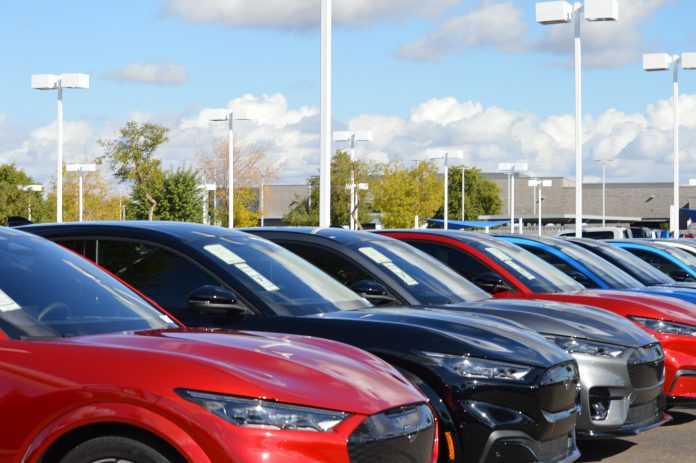Wholesale used vehicle prices increased in August, with the Manheim Used Vehicle Value Index (MUVVI) rising to 203.9, reflecting a 1.2% increase from July, though still down 3.9% from a year ago. The unadjusted price increase of 2.2% compared to July led to a year-over-year decline of 4.6%. The market saw consistent price appreciation throughout the month, except for the last week.
Cox Automotive’s Jeremy Robb noted that wholesale values at Manheim remained elevated as sales conversions increased significantly, indicating strong buyer activity aimed at replenishing used retail inventories. Lower lease maturities and tighter retail days’ supply have pressured buyers, signaling continued demand in the coming weeks.
Manheim Market Report (MMR) values increased weekly in August, with the Three-Year-Old Index rising 0.8% over five weeks. This contrasts with long-term averages, where the month typically sees depreciation. Daily MMR retention averaged 98.9%, with sales conversion rates reaching 63.3%, notably higher than the 55.7% average in recent years.
All major market segments experienced year-over-year declines in August, but the pace of depreciation has slowed. Luxury vehicles fell by 2.9%, while midsize sedans declined by 3.9%. SUVs dropped by 4.3%, pickups by 5.5%, and compact cars by 5.6%. Compared to July, luxury cars led the increase, rising by 3.5%, followed by midsize sedans at 1.6%.
EV values increased 4.4% from July, though they remain down 7.2% year-over-year. Non-EV prices also increased but at a slower pace of 1.8%.
Retail used-vehicle sales surged in August, up 34% from July and 21% year-over-year. Retail prices also rose by 1.6% over the month. Inventory tightened, with days’ supply falling to 38, down from 54 in July and 46 in August 2023.
New vehicle sales also showed strength, increasing 7.6% year over year to 15.1 million units at a seasonally adjusted annual rate (SAAR). Fleet sales, however, declined by 21% from last year.
Rental risk prices dropped 1.7% year-over-year but rose 2.0% compared to July, with average mileage remaining steady.
Consumer confidence in August improved modestly, with both the Conference Board Consumer Confidence Index and the University of Michigan’s sentiment index showing gains. Inflation expectations dropped to their lowest since December 2020, but consumers remained pessimistic about vehicle buying conditions due to high interest rates and prices. Gas prices also decreased, with the national average at $3.33 per gallon, down 13% from last year.



